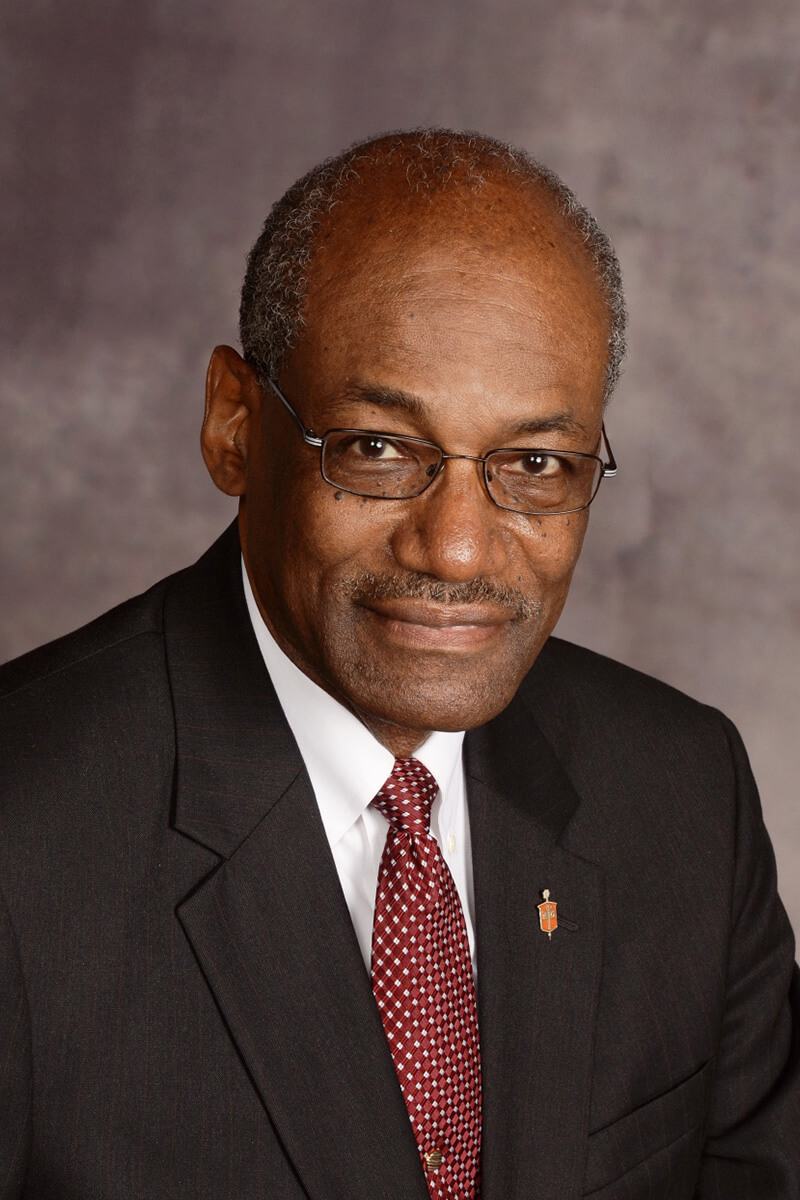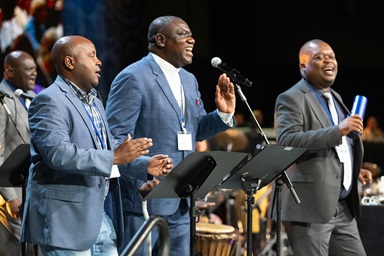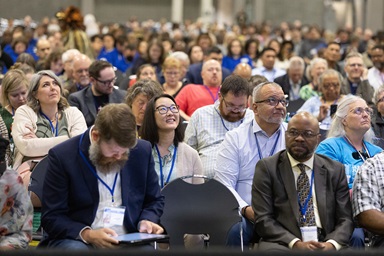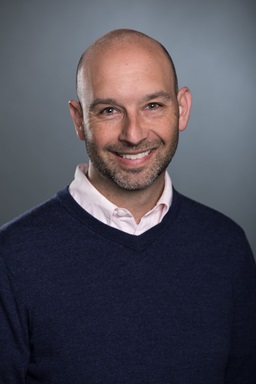Key points:
- The United Methodist Church and the world at large are plagued by “isms” — racism, sexism and heterosexism — as well as division in many forms.
- We wear masks to protect ourselves from being viewed as racist, when in fact we could be concealing our failure to love others and to speak out, writes retired Bishop Ernest S. Lyght.
- By removing our masks, we can experience transformation and learn to love God, others and ourselves in a more powerful way, he says.

Photo courtesy of the Council of Bishops.
Commentaries
Within our United Methodist Church, we are living in the midst of dissension, while there is heartbreaking turmoil festering across our world.
Concurrently, The United Methodist Church is in the midst of a theological storm. War is raging between Russia and Ukraine, as refugees seek sanctuary all across Europe. As the Israeli military seeks to defeat Hamas in Gaza, thousands of Palestinian people have died, while thousands of refugees are homeless. Even though prayers for peace are offered, wars are being waged in other parts of the world.
Meanwhile, our world is plagued by “isms” and phobias, and the United Methodist community is not exempt from this reality. These negative beliefs are fueled by stereotypes, ignorance and fear.
A major “ism” that is pervasive in the United States of America, as well as other nations, is racism, which is characterized by prejudice against a certain minority racial or ethnic group. Racism is often weaponized through various forms of discrimination. This type of antagonism can be manifested by an individual, an institution or a community.
Let’s ponder a few pertinent questions. What are the beliefs and attitudes of individual United Methodist lay people and clergy persons? What examples of racism occur in an institution such as The United Methodist Church?
Unfortunately, racism has a way of wafting its way into the very structure of an organization. Our denomination is not immune from such vicissitudes of racism.
Another “ism” that infects our society is sexism, which is prejudice based on a person’s sex or gender. Thus, we often encounter discrimination against women and girls.
A related “ism” is heterosexism or homophobia, which is discrimination against people who are not heterosexual.
“Isms,” because of their toxicity, can lead to division.
In addition, we are confronted by other issues, including disaffiliation over the denomination’s disagreements about human sexuality. The United Methodist Church is not likely to resolve the divisions around human sexuality until racism is eliminated in the denomination.
Within our beloved United Methodist Church, we continue to struggle with a variety of theological differences that have divided the laity and the clergy. We are confronted with the battle of the “isms,” which leads to division and separation rather than inclusion and unity. The divisions and fractures in The United Methodist Church tend to mirror the divisions and fractures that we encounter in the general society, such as economic, political, theological, racial, ethical and moral divisions.
Too often the typical response to racism and other “isms” is for folks to don a mask as a shield. We wear a mask to protect ourselves from being perceived as a racist. We wear a mask to protect ourselves from the harms of racism or to hide our racist selves. What are you concealing when you wear a mask? It could be (a.) a failure to speak out against racism, (b.) a failure to do the Gospel in our daily living while engaging in acts of racism, or (c.) a failure to love.
James Cone, in his theological biography, “Said I Wasn’t Gonna Tell Nobody,” reveals that, “as a child, I learned to wear a mask whenever I went to town in Beardon — careful always not to show my real self, for fear of offending white people.”
Wearing a mask, figuratively speaking, protected him from the throes of racism as manifested in a segregated predominantly white community. He wore his mask until he got back home in his part of town. Cone confesses that “I took my mask with me to graduate school at Garrett and Northwestern.”
Cone describes how as a graduate student he took off his mask in class one day when he angrily accused his professor of being a racist. After the class, in the setting of the professor’s office, the professor denied being a racist. This encounter provided an opportunity for Cone to articulate the reality that he was concerned about “the deeper problem of race in America.”
We all wear a mask, and to varying degrees, we are complicit in the racism that plagues the American scene and is present in The United Methodist Church. Cone’s experience of removing his mask in graduate school was transformative for him, and it freed him to embark on the journey of combatting racism in theology. This experience constituted a transformative unmasking. He later became known as the creator of Black Theology.
Like Cone, we too must find the courage to remove our masks, and enter into a process of transformation and engagement of racism in our church and society.
Ultimately, the necessary transformative change is one that is lasting, and consequently changes the heart and mind of an individual and the very psyche of our communities. Such transformation will reshape the content of our hearts and minds as well as the direction of our actions. It is imperative, therefore, that we United Methodists strive for personal and social transformation. This is a difficult task that has a theological starting point, which is community.
Community constitutes our life together as Christian disciples, as United Methodists. From a Wesleyan perspective, it is in community that we learn to strive toward personal holiness and social holiness, which are the foundations for personal and social transformation respectively.
Subscribe to our
e-newsletter
In community, we learn to deal with truth, particularly the truth of racism. As Christian disciples, it is important to remember that we have our unity in Jesus Christ. It is Jesus who invites us to open the door to our hearts so that we can learn to fellowship together in Christian love.
In the matter of transformative unmasking and confronting racism in The United Methodist Church, the many local communities of faith first can engage in prayer. Our prayers must be constant, fervent, regular and frequent. This can be prayer in one’s prayer closet as well as prayers in the gathered community. Also, our prayers connect us to a wider praying community.
Second, small groups can be a vehicle for engaging in meditation. Meditation at home or in private is a productive discipline. It is a time to listen with a contemplative mind and spirit.
Third, discernment through prayer, meditation and study will help us to clarify the way forward as we unmask racism.
Fourth, the tool of nonviolent direct action is a means of manifesting the church’s prophetic voice. Jesus, indeed, calls us to love one another. These tenets can serve as guideposts as we invite and allow God, through the transformative unmasking of our racism, to pave the way forward.
Transformative unmasking will help United Methodists to experience the power of open hearts, open minds and open doors.
First, we must experience a spiritual warming of the heart, which is a transformation of our relationship with God. Then we can love God, neighbors and ourselves in a new and profound way.
Second, allow transformative unmasking to enable you to see other people as children of God.
Third, permit transformative unmasking to open the doors of our churches to the world.
Finally, as unmasked and transformed disciples, go out into the world and share the Good News that transcends racism.
Lyght is a retired bishop of The United Methodist Church and a co-author with Dr. Michele E. Watkins, Dr. Julius E. Del Pino and Bishop Jonathan D. Keaton of “Unmasking Racism: Coloring with Love in the Church Community and Academy,” published by Wesley’s Foundery Books, an imprint of the United Methodist Board of Higher Education and Ministry.
Like what you're reading? Support the ministry of UM News! Your support ensures the latest denominational news, dynamic stories and informative articles will continue to connect our global community. Make a tax-deductible donation at ResourceUMC.org/GiveUMCom.



